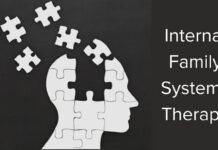
Last Updated on March 12, 2024 by admin
55 million people struggle with dementia around the world, and severe memory loss is only expected to become more common in the coming decades.
It can be scary to face memory loss or watch a loved one go through it. And it can be hard to distinguish between innocent forgetfulness and a significant cognitive issue.
Read on to learn three common signs of memory loss to watch for.
Table of Contents
1. Forgetting Milestones and Long-Held Memories
When friends and family come together, they often bond over shared memories and long-lost times. This is especially true as we grow older, looking fondly back on old memories.
But one of the early signs of memory loss to take note of is if you or a loved one is forgetting cherished memories. If you find yourself talking about an event or place you both know, but one person is struggling to recall any details, this could be a sign of memory issues.
Losing memories happens commonly as we age, but if it’s causing a constant disconnect when reminiscing with loved ones, significant memory loss may be the cause.
2. Mood Changes and Irritability
Memory affects not only our ability to recall information, but it also supports our mood and emotional regulation.
People who are suffering from memory loss and dementia may have more mood swings than before. They may become angry or aggressive, seemingly out of nowhere. They may also exhibit sadness and signs of depression.
Memory loss and moodiness seem to feed each other. When someone struggles to complete everyday tasks, it’s understandable that they may become agitated and frustrated with their limitations. And when someone is chronically anxious or depressed, they may suffer from even more memory loss.
Thankfully, managing and treating one often helps to treat the other. A doctor can help manage memory issues as well as new emotional struggles.
3. Inability to Follow a Regular Routine
One of the most important memory loss signs to watch for is if you or a loved one is unable to function in a normal, daily routine.
Getting lost in familiar places, being unable to stay on top of bills and payments, and neglecting proper hygiene are all related to memory loss. Memory loss and dementia can make it hard to follow a regular routine without confusion. It can become difficult to follow directions properly, operate household appliances and devices, or make sound decisions.
When you or a loved one is unable to take care of themselves in their day-to-day life, it’s time to seek help. Memory care homes can offer a safe and supportive place to live for people with dementia and Alzheimer’s.
Have You Noticed These Signs of Memory Loss?
If you or a loved one is exhibiting these common signs of memory loss, it’s time to speak with a doctor. They can offer their recommendations for how to manage memory issues and how to strengthen cognitive functioning.
A memory care home can also be a great solution for those needing a safe and secure place to live.
To learn more about mental health, the body, and more, check out our other health articles!
Read More: How to Improve Your Mental Performance?





















